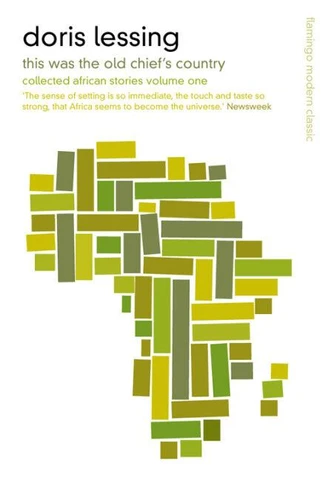Ecrivaine britannique née le 22 octobre 1919 en Iran et morte le 17 novembre 2013 à Londres.
This Was the Old Chief’s Country. Collected African Stories Volume One
Par :Formats :
Disponible dans votre compte client Decitre ou Furet du Nord dès validation de votre commande. Le format ePub protégé est :
- Compatible avec une lecture sur My Vivlio (smartphone, tablette, ordinateur)
- Compatible avec une lecture sur liseuses Vivlio
- Pour les liseuses autres que Vivlio, vous devez utiliser le logiciel Adobe Digital Edition. Non compatible avec la lecture sur les liseuses Kindle, Remarkable et Sony
- Non compatible avec un achat hors France métropolitaine
 , qui est-ce ?
, qui est-ce ?Notre partenaire de plateforme de lecture numérique où vous retrouverez l'ensemble de vos ebooks gratuitement
Pour en savoir plus sur nos ebooks, consultez notre aide en ligne ici
- Nombre de pages432
- FormatePub
- ISBN978-0-00-740489-6
- EAN9780007404896
- Date de parution31/05/2012
- Protection num.Adobe DRM
- Infos supplémentairesepub
- ÉditeurFourth Estate
Résumé
The first volume of Doris Lessing's 'Collected African Stories', and a classic work from the winner of the Nobel Prize for Literature.
'It can be said of all white-dominated Africa that it was - and still is - the Old Chief's Country. So all the stories I write of a certain kind I think of as belonging under that heading; tales about white people, sometimes about black people, living in a landscape that not so very long ago was settled by black tribes, living in complex societies that the white people are only just beginning to study, let alone understand.' Doris Lessing, from the Preface
In this superb volume of African stories, Lessing paints a magnificent portrait of the country in which she grew up.
The cruelties of the white man towards the native, 'the amorphous black mass, like tadpoles, faceless, who existed merely to serve', the English settlers, ill at ease, the gamblers and moneymakers searching for diamonds and gold, and the presence, 'latent always in the blood', of Africa itself, its majestic beauty and timeless landscape: Lessing draws them all together into a powerful, memorable vision.
The cruelties of the white man towards the native, 'the amorphous black mass, like tadpoles, faceless, who existed merely to serve', the English settlers, ill at ease, the gamblers and moneymakers searching for diamonds and gold, and the presence, 'latent always in the blood', of Africa itself, its majestic beauty and timeless landscape: Lessing draws them all together into a powerful, memorable vision.
The first volume of Doris Lessing's 'Collected African Stories', and a classic work from the winner of the Nobel Prize for Literature.
'It can be said of all white-dominated Africa that it was - and still is - the Old Chief's Country. So all the stories I write of a certain kind I think of as belonging under that heading; tales about white people, sometimes about black people, living in a landscape that not so very long ago was settled by black tribes, living in complex societies that the white people are only just beginning to study, let alone understand.' Doris Lessing, from the Preface
In this superb volume of African stories, Lessing paints a magnificent portrait of the country in which she grew up.
The cruelties of the white man towards the native, 'the amorphous black mass, like tadpoles, faceless, who existed merely to serve', the English settlers, ill at ease, the gamblers and moneymakers searching for diamonds and gold, and the presence, 'latent always in the blood', of Africa itself, its majestic beauty and timeless landscape: Lessing draws them all together into a powerful, memorable vision.
The cruelties of the white man towards the native, 'the amorphous black mass, like tadpoles, faceless, who existed merely to serve', the English settlers, ill at ease, the gamblers and moneymakers searching for diamonds and gold, and the presence, 'latent always in the blood', of Africa itself, its majestic beauty and timeless landscape: Lessing draws them all together into a powerful, memorable vision.


















